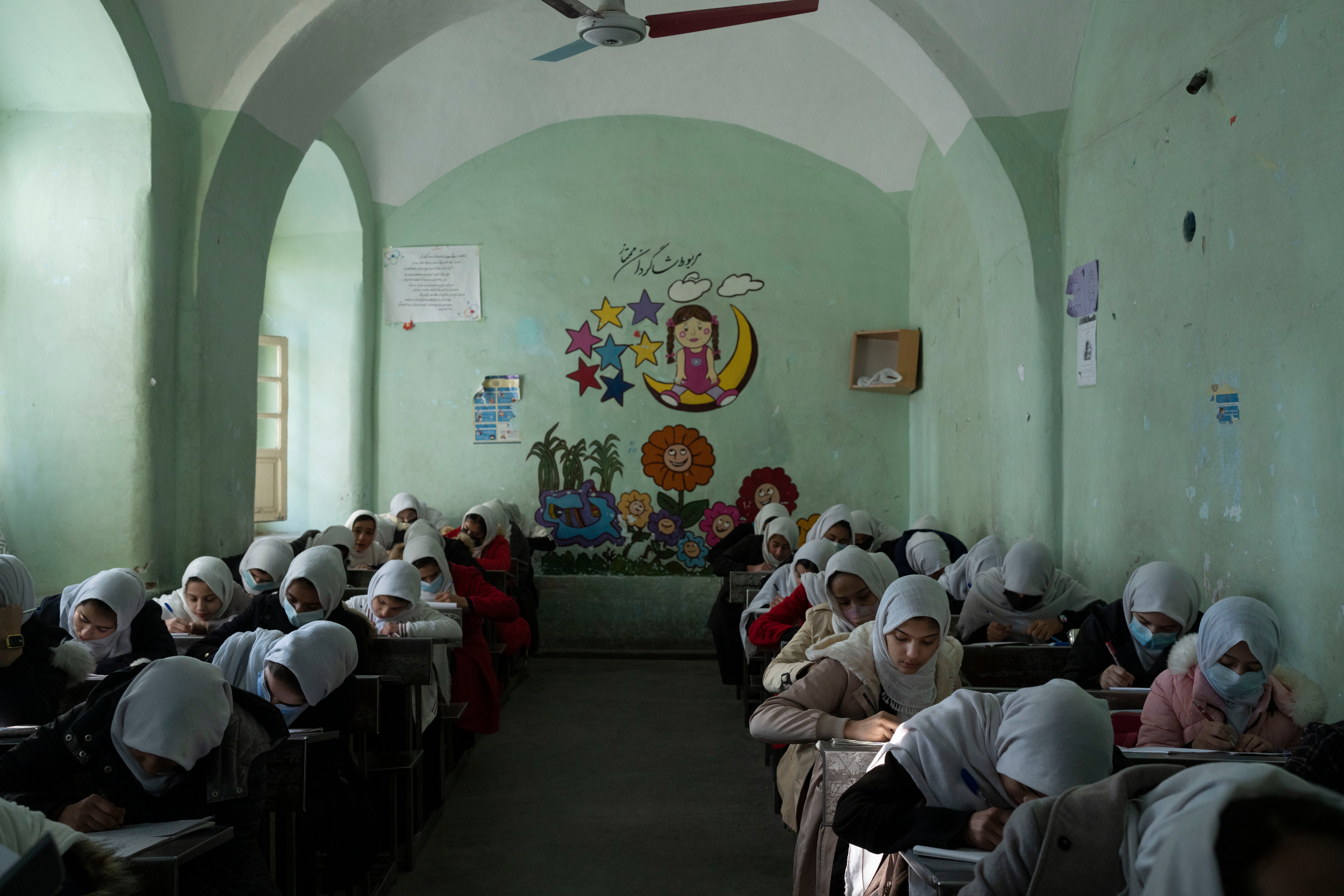Danish aid chief says group's Afghan female staff working
A Danish aid group has been able to keep its Afghan women employees working, even after the Taliban takeover of the country last August

Your support helps us to tell the story
From reproductive rights to climate change to Big Tech, The Independent is on the ground when the story is developing. Whether it's investigating the financials of Elon Musk's pro-Trump PAC or producing our latest documentary, 'The A Word', which shines a light on the American women fighting for reproductive rights, we know how important it is to parse out the facts from the messaging.
At such a critical moment in US history, we need reporters on the ground. Your donation allows us to keep sending journalists to speak to both sides of the story.
The Independent is trusted by Americans across the entire political spectrum. And unlike many other quality news outlets, we choose not to lock Americans out of our reporting and analysis with paywalls. We believe quality journalism should be available to everyone, paid for by those who can afford it.
Your support makes all the difference.A Danish aid group was able to keep its Afghan women employees working even after the Taliban takeover of the country last August, the chief of the nongovernmental organization said Tuesday.
Charlotte Slente, secretary general of the Danish Refugee Council, told The Associated Press that without the group's female staff, the NGO would not be able to reach half the population of Afghanistan.
The aid group, which provides assistance to more than 1 million Afghans, was particularly proud of its achievements, Slente said, speaking during a visit to the Afghan capital, Kabul.
“We’ve been working in a very principled manner since August to ensure that our female staff can continue working and go to work,” she said.
“We need female staff as part of our team in order to be able to reach female beneficiaries" of the aid, Slente added. “Without female staff, we cannot reach half of the population.”
In Kabul, Slente was assessing the growing humanitarian crisis in the country; she also met with Afghanistan’s new Taliban rulers.
Since the Taliban takeover, aid for development stopped and a budget that was 80% provided by international donors came to a halt. Now, about 95% of Afghans do not have enough to eat, according to the United Nations and the economy is in free fall. People can withdraw a maximum of $200 every two weeks from their banks.
Slente said she pressed in her talks with Taliban officials the need for girls to go to school beyond the sixth grade — a promise the Taliban reneged on last month. They have also issued harsh edicts, including banning women from traveling on planes unaccompanied by a male relative — just one of several restrictive measures the Taliban have implemented that hark back to their harsh rule of the late 1990s.
The Taliban listened to Slente, she said, and while they made no promises on women's access to education and the workforce, they assured her that the Danish Refugee Council would have free access to all members of the Afghan society.